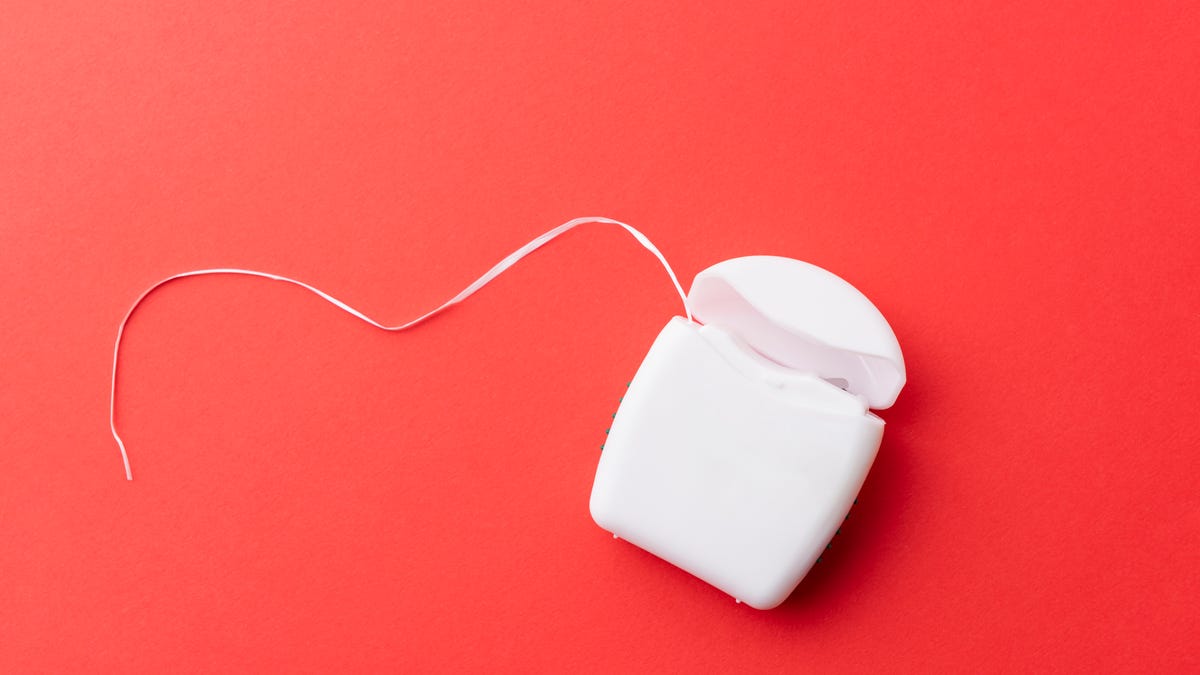 Why You Can Trust CNET
Why You Can Trust CNET You Should Always Floss Before Brushing Your Teeth. Here's Why
Take your flossing routine to the next step by changing when you do it.

When should you actually floss?
There's so much that goes into keeping our teeth and gums healthy, from brushing twice a day and using mouthwash to flossing and scraping our tongues. And chances are you probably have a daily oral hygiene routine -- but what if one step is wrong?
Switching up our daily habits can be challenging. Especially if we've been doing something a certain way for years. For instance, there's advice that you shouldn't rinse your teeth with water after brushing. But there's another dental hygiene tip: You should floss your teeth before you brush them.
Many of us, including me, were taught to brush our teeth and then use floss to remove anything the toothbrush missed. Even dental hygienists floss after they're finished brushing our teeth. This raises the question: Does it make a difference if you floss before or after brushing?
Here's what the American Dental Association says about when to floss, and why some believe flossing first is better. For more, here's whether you should brush your teeth before or after breakfast.
There are lots of electric toothbrushes to choose from.
What's the reason for flossing first?
A small 2018 study of two test groups showed flossing before brushing reduced whole plaque significantly more compared with those who brushed before flossing. Fluoride concentrations were also much higher in those who flossed first. But there wasn't a significant difference in marginal plaque between the two groups.
Flossing helps to loosen plaque and stuck food residue between teeth to help prevent tartar buildup. Sensodyne says that flossing before you brush can result in more particles getting flushed out from those hard-to-reach spaces between the teeth, while also retaining more fluoride.
What if you've been flossing after you brush your teeth?
If you were taught to floss your teeth after you brush, don't fret. As long as you're flossing once per day, you're already one step ahead, Dr. Edmond Hewlett, consumer adviser for the ADA and professor at UCLA School of Dentistry, told me. "Dentists just want you to floss."
It also doesn't matter what time of day you floss. For instance, if you'd rather floss in the morning instead of the evening, you can. As long as you do a thorough job, it doesn't matter when you floss, according to Mouth Healthy, an ADA site.
The bottom line? Just make sure you're flossing once a day for your tooth and gum health. But if you really want to kick up your dental hygiene a few notches, try flossing beforehand.
You can floss in the morning or evening.
Additional flossing tips
Here are some more tips to ensure you're getting the best outcome from flossing.
- Never reuse a strand of dental floss. It could leave bacteria in your mouth.
- When flossing, move to the next clean segment of strand for each tooth.
- Don't aggressively slide the floss into your gums. Gently wiggle it until it reaches the gum line.
- Floss in a C-shape between each tooth.
- Use a water flosser, like this Waterpik, if string floss is too difficult for you to use.
- Don't use objects that aren't designed for flossing -- for instance, a knife, a sharp card or a safety pin.
For more, check out these best electric toothbrushes, including Hum, Quip and Oral-B iO. And here's a neat way to use floss to cut a cake.

